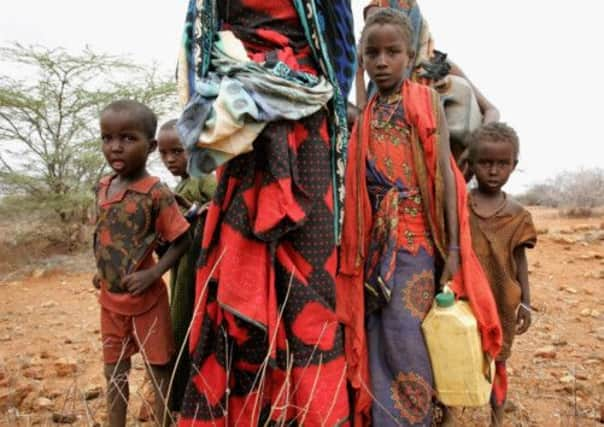Dr Tanya Wisely: We’re citizens of the world


Whether we are aware of it or not, we are all increasingly interdependent.
We are linked to people and places across the world – socially, culturally, environmentally, economically and politically – to a degree many of us find difficult to fully understand.
Advertisement
Hide AdAdvertisement
Hide AdOur connections extend from what we read and watch in the media to our culturally diverse societies, the food we eat, the things we buy and the jobs we have or don’t have.
Against this backdrop, education for global citizenship offers opportunities for us and, crucially, our children to examine how this complicated web of connections affects our lives.
Through a focus on global issues – such as human rights, equality and diversity – it helps us explore the impact of our own lifestyles as well as how we relate to each other, both locally and globally.
Scotland’s Development Education Centres have, since the early 1980s, sought to offer practical help and support to teachers delivering global citizenship.
However, for many years now, the centres – located in Aberdeen, Coatbridge, Dingwall, Dundee, Edinburgh and Glasgow – have operated on a shoe-string budget with their committed and resourceful staff facing a very uncertain funding context.
Against this context, the Scottish Government’s decision to contribute towards their core running costs for the first time is a significant and welcome step forward. The centres will receive £600,000 spread over the next two years.
The decision follows a campaign by the development education network IDEAS, and the Enough Food For Everyone IF Campaign – a coalition of organisations, including Oxfam.
The money will place the centres on a more sustainable financial footing, allowing them to focus on building the capacity of teachers to integrate global citizenship education into their classes.
Advertisement
Hide AdAdvertisement
Hide AdAs such, it is a substantial investment in the development of an outward looking, informed and engaged Scottish population – one that plays a positive role in the world.
In March, the Scottish Government announced that every pupil is entitled to “Learning for Sustainability” – which encompasses global citizenship, sustainable development and outdoor learning.
These three areas have shared as well as specific concerns, but crucially all aim to make education more outward- looking and engaged with real- world issues.
They ask teacher educators, teachers and pupils to become more critically reflective and to address the fact the current use of the world’s resources is inequitable and environmentally unsustainable.
Many teachers find tackling global issues daunting – they struggle to see how to fit them within their teaching and question whether their pupils will “get it”.
In most cases, the barrier isn’t a shortage of motivation but rather a lack of confidence.
Development Education Centres provide practical classroom-based means and strategies for overcoming these initial concerns and can then support further and deeper engagement.
The experience of the centres is that far from making teachers’ lives more difficult, global citizenship can enrich the school experience and ease the implementation of Curriculum for Excellence. Given appropriate professional support, teachers begin to see the many ways in which it can be introduced to their classroom practice.
Advertisement
Hide AdAdvertisement
Hide AdThey talk about how it reconnects them with their reasons for going into teaching in the first place. They comment on how it re-energises their teaching and makes them both more aware of and questioning of their professional values, as well as the ethos and relationships within their schools. Many also reflect on a realisation that they had underestimated their pupils’ interest in these issues, and offer observations of children who are usually more disengaged or disruptive becoming involved, animated and constructive.
This important work is fundamentally about our common humanity and our shared responsibility for our world – this new funding is an investment in Scotland as a responsible global citizen.
• Dr Tanya Wisely is hub facilitator at International Development Education Association of Scotland (IDEAS)